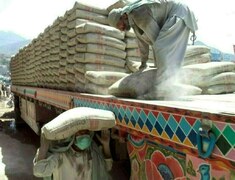EDITORIAL: A Business Recorder exclusive reveals that austerity measures for the current year are awaiting Caretaker Prime Minister’s approval – measures over and above those implemented by previous administrations that included serving only tea and biscuits during official meetings, single dish to be served during government events, banning treatment abroad as well as purchase of furniture, vehicles and other durable goods, using videolink to reduce travel costs and perhaps the most significant of all a 15 percent cut in the budget.
Critics no doubt would challenge the timing of the austerity measures that have been clearly pending for four and a half months after the Caretaker Prime Minister took oath on 14 August and a week later on 20 August when the cabinet, including the caretaker finance minister, was sworn in - a pendency that is already over a month and a half of the constitutionally mandated three-month tenure of a caretaker set-up.
In addition, while details of the cost of foreign travel by the caretakers have yet to be released yet, there is evidence to suggest that their forays into other capitals in search of foreign direct investment may have cost the taxpayers even more than during previous administrations when adjusted for duration in office, including during the 2013-18 PML-N (Pakistan Muslim League-Nawaz) tenure.
In the event that foreign direct investment does flow into the country critics may be silenced but to-date pledges and non-binding Memoranda of Understanding have been signed on a scale comparable to those signed during previous administrations while inflows in excess of a billion dollars are still awaited.
Be that as it may, there is irrefutable proof to suggest that the inexplicable budgeted rise in current expenditure in the ongoing year, inexplicable due to the narrow fiscal space, estimated at 26.5 percent higher compared to the revised estimates of last year and 52.9 percent against the budgeted amount last year, is on track while like their elected predecessors the caretakers have slashed budgeted development expenditure.
The budgeted rise in current expenditure has not only, not been contained, but more disturbingly is being funded through a massive rise in domestic borrowing which is a highly inflationary policy.
Domestic borrowing as per the State Bank of Pakistan website was a high of 3.585 trillion rupees July to 8 December 2023 against total borrowing last fiscal year of 3.7 trillion rupees - nearly 97 percent of last year’s total domestic borrowing has been reached in the first five months of the current year.
This massive injection into the economy that is not backed by any rise in output is contributing more to the inflationary spiral - nearing 30 percent headline inflation and over 40 percent weekly sensitive price index - than the harsh upfront conditions imposed by the International Monetary Fund under the ongoing Stand-By Arrangement particularly those pertaining to utility rates to meet the objective of full cost recovery.
In addition, the rise in domestic government borrowing is crowding out private sector activity which, in turn, is the root cause of a contained large-scale manufacturing (LSM) growth in spite of bumper crops that are used as inputs by the LSM, notably cotton and sugarcane.
While the mandate of the caretakers is constitutionally limited in terms of time and ability to implement reforms, notwithstanding some significant expansion of their powers by the previous parliament, yet what appears to be glaringly obvious is that they have limited their focus to ensuring that the SBA (stand-by arrangement) proceeds without any hiccups, which explains burdening the general public with ever rising utility rates instead of improving sector efficiencies, and concurrently to ensure that the budgeted current expenditure, including a 30 to 35 percent raise in salaries of government employees and procurement, does not face any shortfall even if it requires borrowing unwisely from the domestic banking sector.
It is extremely disturbing that the caretakers who should have used their limited time to implement out of the box and politically challenging solutions rather than adhering to past policies focused on elite capture in terms of expenditure and revenue sources would leave an economy far more burdened with debt than what they inherited – a usual occurrence for the hapless Pakistani public.
Copyright Business Recorder, 2023























Comments
Comments are closed.